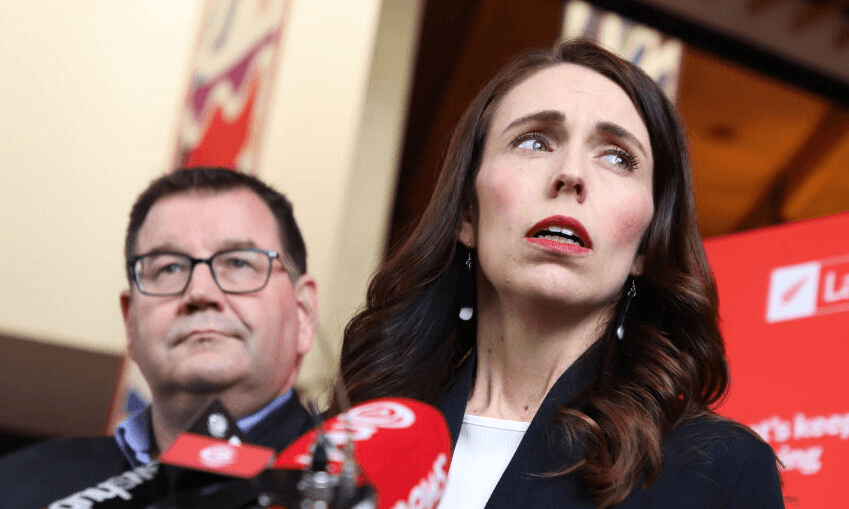The prime minister has been quick to rule out benefit increases before Christmas – but the welfare system is failing our communities, which she ignores at her peril, writes Child Poverty Action Group’s Janet McAllister.
More than 60 organisations – and counting – have signed an open letter to the government, urging it to increase income support to liveable levels to release families from dire poverty.
When asked yesterday about our open letter calling for benefits to be lifted before Christmas, Jacinda Ardern replied, “this is not going to be an issue that can be resolved in one week, or one month or indeed one term”. Her government have already had one term. What, exactly, are they waiting for?
Signatories to our letter include unions, social service NGOs, housing providers, food banks, churches and groups representing Māori, women, children and people with disabilities (full list here). To have so many organisations come out so publicly with a broad-based agreement on government responsibility is rare. The open letter follows calls from elsewhere to raise incomes: the Human Rights Commission is urging for a “welfare system that ensures a secure and dignified life for everyone” and children’s commissioner Andrew Becroft has been advocating for a long time for the government to significantly lift the incomes of the poorest families.
Fincap – representing financial advisers and budgeting services – has signed the letter. You can’t organise a budget for what you don’t have. Citizens Advice Bureau is there. You can’t advise on situations that the system has made impossible. Ngā Tangata Microfinance is there – I’m on their interest-free loans approval committee, and the stories we see are eye-opening. So many of us are one toothache, one defaulted loan repayment, one missed shift, one failed WOF away from a never-ending vicious spiral of decades of debt. The unions are there – PSA, Unite, First Union, the whole Council of Trade Unions. They’re worried in part about what happens when workers lose their jobs but in general, you know, they’ve also joined out of common decency.
Calling for “enough” for “adequacy” for “not-poverty” is a very low bar. Preventing people from having enough – that’s unreasonable. Using children as economic shock absorbers – that’s unreasonable. Covid-response policies that stretch inequity even further – that’s unreasonable.
Child Poverty Action Group research this year has shown that core entitlements for those receiving benefits are mostly far below key poverty lines, and in some cases will be tipping people into severest poverty. We modelled a scenario that shows 70,000 additional children are at risk of poverty due to Covid-19 on current policy settings.
Child poverty, particularly severest income poverty, is linked to benefit levels as well as housing costs. For example, here’s a little something for my fellow data-loving nerds. The graph below shows severest poverty for children doubled overnight when benefits were slashed in the early 1990s, then increased even higher. Successive governments never regained that lost ground (blue background means a National-led government; pink background means Labour-led). Sure, there were very slow, incremental reductions during the Clark government years (and spot the income-related rents reintroduction – useful for many in severest poverty), but then a new government and the Global Financial Crisis came along, and things got worse again. In 2018, child poverty levels were higher than they were in 1991. The Ardern government may have shifted things a bit (it’s too early to say by how much) – but then along came Covid-19 (not shown in the graph, which only goes up to mid-2018).
What we need is the reverse of the 1991 doubling of child poverty: fast-acting and long-lasting. The housing quagmire is a hindrance, and was always going to take a while to sort out (even if the government hadn’t disappointingly ruled out various property taxes). But income support is a different matter: policy changes now would have an instant effect, offering immediate and long-term relief.
We know cash transfers work. The government knows cash transfers work – MSD produced a research review for the Welfare Expert Advisory Group on this very matter. For courageous and caring parents and caregivers on inadequate incomes, who are being made to use up creativity and energy on paying the next bills, cash is vital. They are doing the hugely important job of raising children, and the government has made it near-impossible for many.
It’s a question of priorities: let’s prioritise the wellbeing of our children and our whānau. Our open letter – and the dismayed, disappointed and, in some cases, furious response to its dismissal – shows there’s political appetite for this, and our communities are very, very keen.





